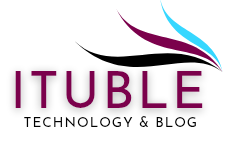Sleep Interrupted: Oneframework 6 Ways Technology Affects Your Sleep Health
In our hyper-connected world, it’s hard to imagine a night without checking our phones, streaming a show, or scrolling social media before bed. But could these habits be sabotaging your sleep? According to oneframework 6 ways technology affects your sleep health, modern digital devices might be more disruptive than we realize. Understanding how technology influences your rest is the first step toward better sleep hygiene.
Blue Light and Circadian Rhythm Disruption
Perhaps the most well-documented way technology interferes with sleep is through blue light exposure. Screens from smartphones, tablets, and computers emit blue light that mimics daylight, tricking your brain into staying awake.
The pineal gland, which regulates melatonin production, responds to light cues. When blue light is present, melatonin production is delayed, making it harder to fall asleep. This disruption of your circadian rhythm can lead to chronic sleep deprivation over time.
Mitigating Blue Light Exposure
To reduce its impact, consider using blue light filters or apps that adjust your screen’s warmth at night. Also, avoid screens 1–2 hours before bed to help your body prepare for sleep naturally.
Mental Stimulation and Overactive Brain Activity
Another factor highlighted in oneframework 6 ways technology affects your sleep health is mental stimulation. Whether you’re gaming, replying to emails, or engaging in social media debates, your brain stays alert and active.
This heightened stimulation delays the onset of deep sleep. It becomes even more problematic when combined with stress-inducing content like news or work notifications, leading to increased cortisol levels and reduced REM cycles.
Wind Down Routines Matter
Instead of digital stimulation, engage in calming activities before bed. Reading a physical book, journaling, or doing light stretches can promote mental relaxation.
Interrupted Sleep from Notifications and Alerts
Even if you manage to fall asleep, staying asleep is another challenge. Late-night notifications, vibrations, or LED alerts can cause micro-awakenings that fragment your sleep.
According to sleep researchers, these disruptions may not wake you fully, but they prevent your brain from entering deeper stages of rest like REM and slow-wave sleep. Over time, this results in poor sleep quality and daytime fatigue.
Turning your phone to Do Not Disturb mode or using sleep focus features can reduce this kind of disruption.
Sleep Tracking Devices: Help or Harm?
A somewhat controversial point in oneframework 6 ways technology affects your sleep health is the role of wearable sleep trackers. These devices offer insights into your sleep duration and quality, but they can also cause anxiety—a phenomenon known as “orthosomnia.”
Some users become obsessed with their sleep data, checking metrics daily and stressing about scores. Ironically, this anxiety can lead to worse sleep rather than improvements.
Use Sleep Tech Mindfully
If you use a sleep tracker, treat the data as a general guide rather than a performance score. It’s more important to focus on how you feel during the day than on hitting perfect numbers.
The Impact of EMFs and Environmental Factors
A lesser-known but increasingly discussed topic is the role of electromagnetic fields (EMFs) from devices. While the scientific community is still debating the extent of EMF impact, some studies suggest that proximity to devices emitting Wi-Fi or cellular signals may disrupt melatonin levels and sleep quality.
Additionally, sleeping in a room filled with LED lights, chargers, or always-on gadgets can lead to subconscious restlessness. According to oneframework 6 ways technology affects your sleep health, a clean, tech-free environment enhances your ability to fall and stay asleep.
Removing unnecessary electronics from the bedroom or unplugging them at night can help create a more restful atmosphere.
FAQ
Does blue light really affect sleep that much?
Yes. Blue light significantly delays melatonin production, which makes it harder for your body to fall asleep naturally.
Can a sleep tracker actually make sleep worse?
If used obsessively, yes. While helpful for identifying patterns, overanalyzing sleep data can lead to sleep anxiety.
Is it bad to use my phone as an alarm?
Not necessarily, but it’s better to use a traditional alarm clock to avoid temptation and nighttime distractions.
Do EMFs impact sleep?
More research is needed, but early findings suggest a potential link between EMFs and disrupted melatonin levels.
What’s the best way to improve sleep in a digital world?
Limit screen time before bed, create a tech-free bedroom, and follow consistent sleep routines.
Conclusion
Technology has made life more convenient, but it’s clear that its influence reaches far beyond our waking hours. According to oneframework 6 ways technology affects your sleep health, everything from blue light to screen-related anxiety can have a lasting impact on how well we rest.
By becoming aware of these factors and making small lifestyle changes—like reducing screen time before bed, muting notifications, and removing gadgets from the bedroom—you can protect and improve your sleep health.
Better sleep leads to sharper focus, improved mood, and greater overall well-being. In a tech-driven world, managing our relationship with devices might just be the most important sleep hack of all.







